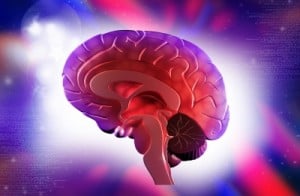 Experiencing stress in daily life has become the norm for the average American. Read our post 5 Sneaky Symptoms of Stress. Between balancing work, providing for a family, attending school, and various other responsibilities, anxiety and worry rapidly build. People are constantly in search of stress relief, which can come in healthy forms, such as yoga, meditation, journaling, etc. However, many people turn to food when feeling overwhelmed with stress, which only contributes to the ever-growing obesity epidemic in the United States. How easy it is to relate to someone reaching for a chocolate bar after a tough day at work or going through the drive-thru after being taunted by countless ads on the drive home on a typical stressful day. Why is it that people feel the need to reach for comfort foods when the reality is that stress eating is ultimately bad for your health due to excessive weight gain?
Experiencing stress in daily life has become the norm for the average American. Read our post 5 Sneaky Symptoms of Stress. Between balancing work, providing for a family, attending school, and various other responsibilities, anxiety and worry rapidly build. People are constantly in search of stress relief, which can come in healthy forms, such as yoga, meditation, journaling, etc. However, many people turn to food when feeling overwhelmed with stress, which only contributes to the ever-growing obesity epidemic in the United States. How easy it is to relate to someone reaching for a chocolate bar after a tough day at work or going through the drive-thru after being taunted by countless ads on the drive home on a typical stressful day. Why is it that people feel the need to reach for comfort foods when the reality is that stress eating is ultimately bad for your health due to excessive weight gain?
Cortisol – Fight or Flight
The body produces a hormone called cortisol in response to stress in addition to a low level of blood glucose, also known as blood sugar. This means the same hormone that tells you when your mind and body are experiencing stress is also the hormone that lets the body know when it is time to eat. Having a steady stream of energy is the healthiest for the body, but when blood sugar starts running low, the body panics. Signals are sent to the brain to eat high calorie and high fat foods in an effort to ensure survival. It’s instinctual!
When people look to food to relieve stress, they often go straight for what is known as ‘comfort’ foods, or in other words, foods with high fat, sugar, and/or carb content. After this food has been consumed, the parts of the brain that process stress are hindered and those stress-related emotions temporarily subside. Therefore, people are not wrong to turn to food to help deal with stress, because the body actually does become less stressed, but again, it’s only a temporary fix. Long term, consistent overeating will cause weight gain and is ultimately detrimental to a person’s health.
Human beings did not always have to face this type of constant stress, nor did they always have grocery stores and fast food on which to rely. However, those basic human instincts in the brain have not adapted in the same ways the lifestyle of an average person has progressed. Thus, the brain sends these signals in an effort to maintain a healthy lifestyle, however they are no longer helpful in modern life.
In addition to the brain’s natural reactions to stress, there are other factors that play a role in why people turn to food for stress relief.
Childhood Habits
From a very young age, people are often taught that food is a reward. Parents let their children have dessert as a reward for finishing their dinner. Teachers sometimes give out candy to those who answer questions correctly in class. Children are even comforted with food in ways, such as getting an ice cream cone if they’ve had a bad day. Although this type of food association seems harmless and is never intended to cause harm later in life, this is where the solid connection between food and feelings is developed. It is no wonder why people think to reach for food when they are in need of comfort.
Not Enough Exercise
Many people who are experiencing high levels of stress rationalize not exercising by saying they do not have time and they are too stressed out with their work or personal lives to make time. Strangely enough, exercise should actually be made a priority when someone is experiencing high levels of stress. Exercise is the most efficient, healthy, and natural way to relieve your stress! Exercise releases endorphins in the brain, which are known to relieve stress and increase happiness. Additionally, it actually gives people MORE energy. However, those who do not exercise regularly often see it as additional stress added to their already stressful schedule. The importance of making exercise a priority in daily life, however, should not be overlooked.
Not Enough Sleep
The average person needs roughly 7 ½ - 8 hours of sleep each night, although that is rarely the case. Polls have shown the average American gets about 6 ½ hours of sleep and many get even less. Not getting enough sleep has associated negative side effects. Not getting enough sleep can be responsible for weight gain all on its own. Also, your ability to learn and retain new information is drastically affected when a person feels tired. Food is often one of the first things people reach for because they are looking for a way to increase energy, so in addition to already gaining weight simply from not sleeping enough, increased caloric intake only adds to the weight gain, only creating more stress. It’s a vicious cycle, and it is all too easy to fall victim. This is why getting enough sleep should be another top priority, along with exercise, in every day life. Plus, feeling rested reduces stress all by itself!
Stress Relief
If the desire to eat when stressed becomes too strong, try to reach for healthy, nutrient-rich foods such as leafy greens, vegetables, nuts, and fruits. Nourishing the body with a healthy diet does wonders for depression and stress alike, as the body has what it needs to function properly. Gorging in unhealthy foods will negatively affect overall mood and will decrease energy level, thus continuing the vicious stress eating cycle.
The best way to avoid stress eating is to find other means of relieving stress. Read our post 5 Healthy and Natural Stress Management Tips. Everyone’s different, so find a method that works for you! Even trying new things may be a stress reliever! You might surprise yourself!
Image courtesy of artur84 at FreeDigitalPhotos.net








